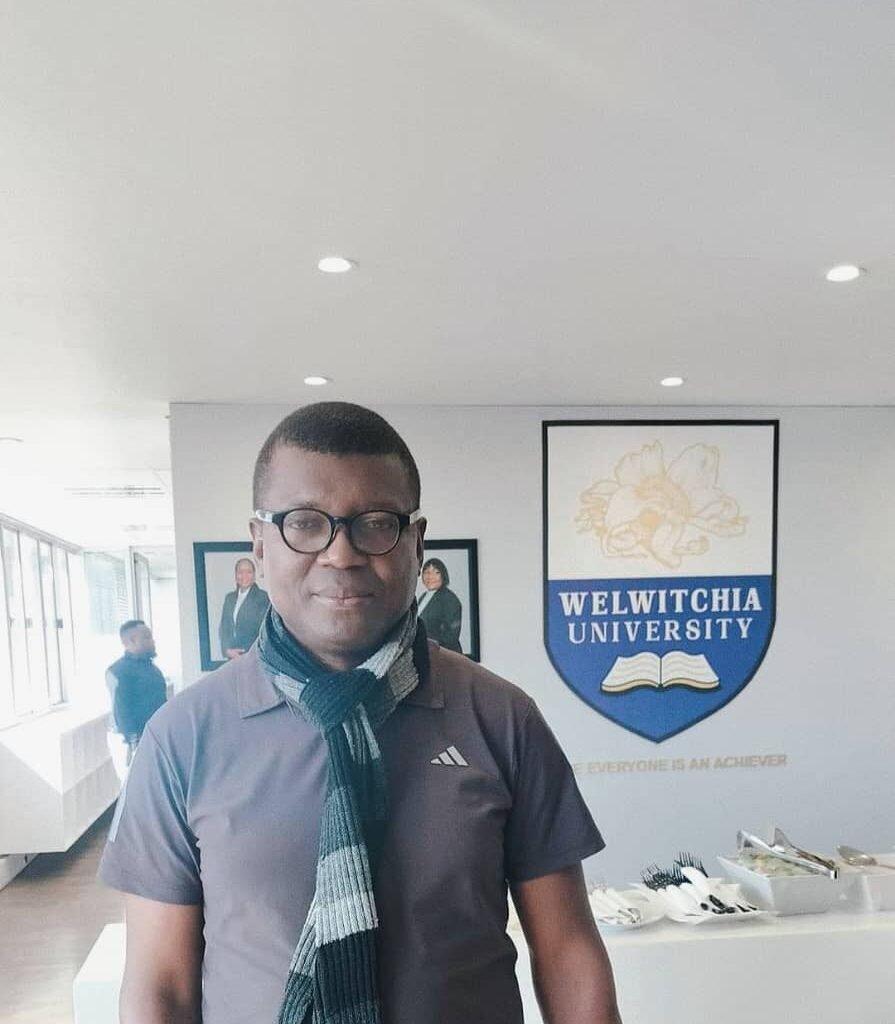
By Prof. Qrissturberg Amua
The Benue State University of Agriculture, Science, and Technology (BSUAST), Ihugh, is purposefully conceived not as a conventional comprehensive university but as a pioneering research-intensive institution with an Agricultural, Scientific, and Technological transformative vision for Benue State, Nigeria, and Africa. Anchored on the imperative of development-driven knowledge, BSUAST is pioneering a redefining of the higher education landscape by placing research, innovation, and technological advancement at the core of our institutional identity. Rather than merely disseminating knowledge (which is good in itself), BSUAST is designed to generate, deploy, and incubate solutions that respond to local needs and global aspirations.

To give structure to this aspiration, the University has established a constellation of specialized centers and Institutes, each tailored to address critical developmental challenges while fostering excellence in research, community impact, and sustainable innovation. These centers will serve as intellectual hubs – fusing science, tradition, technology, entrepreneurship, and creativity – while projecting BSUAST as a bold nexus for African renaissance and global relevance.
The Centre for Environmental Sustainability (CES) is envisioned as a leading think tank for ecological resilience and biodiversity conservation in Nigeria’s Middle Belt and beyond. It is designed to champion sustainable methods of preserving regional ecosystems while conducting rigorous research on flora, fauna, and environmental sustainability practices that support rural livelihoods, ecotourism, and climate stability.
The Centre for Food Processing and Post Harvest Research (CeFPHaR) is purposed to drive research on innovative and efficient food value chain systems. The mission is to improve post-harvest handling, preservation, packaging, and processing technologies that will mitigate food losses, promote agro-industrial competitiveness, and expand export readiness for Benue’s and Nigeria’s agricultural produce.
The Centre for Food Security and Agricultural Innovation (CeFSAI) is designed to be a research frontier committed to ensuring Africa’s food sovereignty and biotechnological checkpoint and adaptive agricultural solutions. It is to develop resilient farming systems tailored to Nigeria’s diverse agroecological zones while promoting safe, sustainable practices and homegrown innovations that should not only increase yield, but preserve biodiversity, and protect farmer livelihoods.
The Centre for Artificial Intelligence, Robotics, and Remote Sensing (CAIRRS) is our novel design to reposition BSUAST as a hub for frontier technologies in agriculture. Integrating precision agriculture, big data, and intelligent systems, the centre will explore the deployment of AI and robotics to forecast yields, predict pests and diseases, automate processes, and create blockchain-enabled farm-to-market logistics; these will enhance productivity and traceability across the food value chain and value loop.

At the forefront of energy transition is the Centre for Renewable Energy and Green Technology (CREGT), which shall address the dual crisis of energy poverty and climate adaptation by developing and deploying affordable, renewable energy technologies. The center’s mandate includes designing local solutions in solar, bioenergy, and low-carbon innovations; supporting rural electrification, agricultural mechanization, and green industrialization.
We also have the African Centre for Climate-Smart Agriculture and Biodiversity (ACCSAB), which is to harness Africa’s native agricultural wisdom and cutting-edge science to advance regenerative agriculture, enhance agroecological resilience, and bridge climate resilience. This center shall align research, extension, and policy interventions that should protect biodiversity and build community-level adaptive capacity.
The Institute for Traditional Knowledge Systems and Ethnobotany (InTraKSE) is a unique repository for Africa’s indigenous knowledge, medicinal plants, and cultural ecological intelligence. It is established to document, validate, and innovate around traditional wisdom, transforming centuries-old agricultural and healing practices into modern tools for food, health, and socio-cultural sustainability.
The Institute for Agro-Industrial Design Thinking and Export Logistics (IADTEL) is to catalyze innovation at the intersection of design, agribusiness, and global markets. It is designed to promote design-driven research, indigenous certification systems, and efficient export logistics that will empower Benue and Nigerian producers to access premium markets, reduce transaction costs, and achieve regulatory compliance for international trade.
With the goal of democratizing knowledge, the Centre for Digital and Immersive Learning (CeDIL) shall advance new frontiers in education through virtual learning, augmented reality, and digital content creation. It is to explore pedagogical technologies that will increase access, engagement, and academic competitiveness amongst Africans while building the digital competencies of Africa’s next-generation scholars.
The Africa Science Network Hub (AFRISciNet) is a thought force to establish BSUAST as a gateway to international science diplomacy and multilateral innovation ecosystems. It shall mobilize strategic partnerships, research consortia, and science-for-policy mechanisms that will enhance Africa’s voice in global scientific governance and open access to funding, data, and collaborative breakthroughs.
In exploring the skies for solutions on the ground, the Africa Centre for Applied Space Science Research (ACASSR) shall integrate geospatial technologies, satellite imaging, and earth observation systems to inform agricultural planning, natural resource management, and disaster resilience. It represents BSUAST’s prime contribution to space-enabled development from a distinctly African perspective.
Dedicated to health innovation, the Institute of Health and Biomedical Innovations (IHBI) is designed to respond to the pressing need for accessible, affordable healthcare in underserved communities. It shall advance researches diagnostics, telemedicine, wearable technologies, and indigenous pharmacology while adopting the approach that links human, animal, and environmental health.
Finally, we have set up the BSUAST Open Innovation and Startup Incubator (BOISI) as the entrepreneurial heartbeat of the University. It shall foster a vibrant ecosystem for student-led startups, faculty spin-offs, and industry collaborations that should transform research outputs into market-ready solutions. Through prototyping, mentorship, co-creation labs, and venture acceleration, BOISI shall nurture a new generation of agritech entrepreneurs and innovation champions for Africa.
Together, these Centres and Institutes embody our strategic leap at BSUAST, beyond traditional academia. They are not mere adjuncts to teaching; they are foundational pillars of a knowledge-driven economy, and vibrant expressions of the University’s resolve to become a transformative force for sustainable development, economic renewal, and African intellectual sovereignty.
Prof. Qrisstuberg Amua, MCSN, MNES, Cert. Biores. Utiliz./Ecol. Conserv.; Fellow of Hubei Bio-Tech (Wuhan. China) is the
Chairman of the Strategic Planning and Implementation Committee for the establishment of BSUAST.
He is also the current Head, Department of Natural Sciences, & Dean of Students Affairs at the
British Canadian University, Obudu








